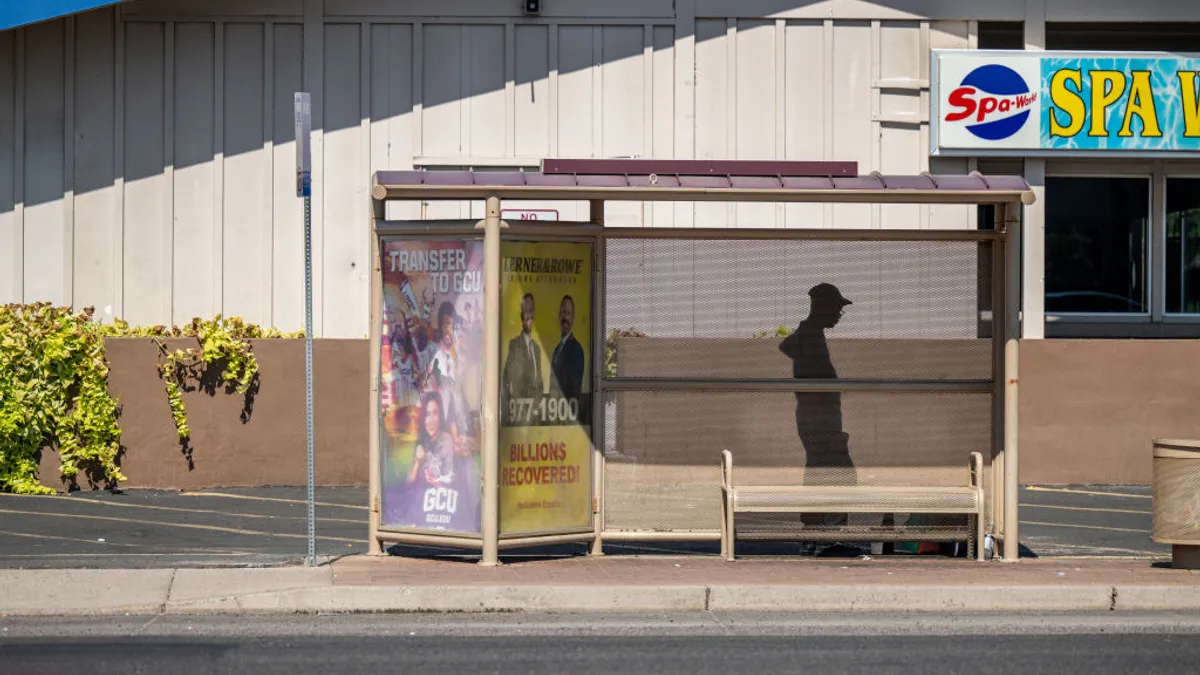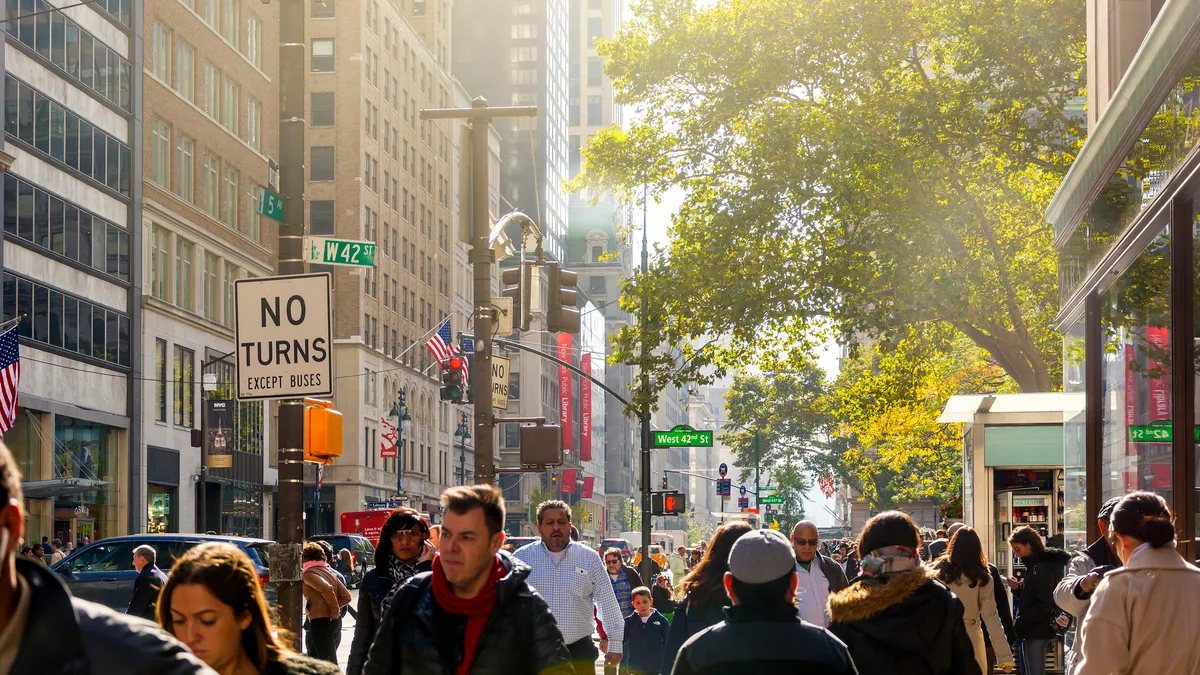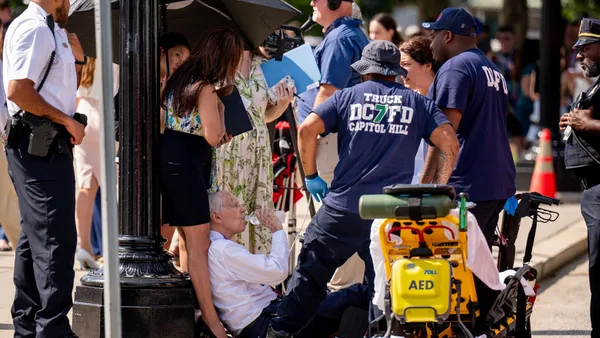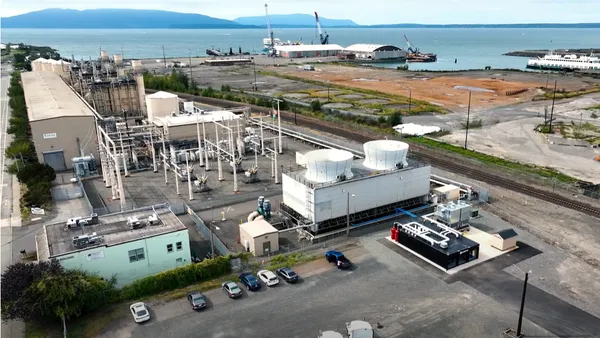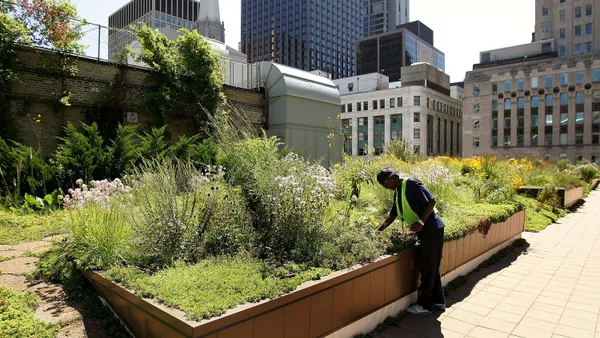To many observers, it was a preview of the world to come. In 2018, millions of people in the city of Cape Town, South Africa came perilously close to running out of water. In the years since the so-called 'Day Zero' drought grabbed global headlines, researchers from Stanford University confirmed what many already suspected: the extreme drought that imperiled the health of so many was made five to six times more likely by climate change, and that a warming world is likely to experience a lot more 'Day Zero' events in the future.
While less publicized, there were also important lessons in how Cape Town responded to the crisis. "They could have treated it like a crisis and had a crisis response, like trucking in water and plugging holes," said Lauren Sorkin, executive director of the Resilient Cities Network, a global organization focused on building urban resilience. Instead, Cape Town simultaneously addressed the crisis and developed a long-term water strategy, "Our Shared Water Future" with input from water consumers, water providers, city leaders, and others.
What is especially unique – and increasingly critical, given the many challenges cities across the globe face today – is how Cape Town's membership in the Resilient Cities Network allowed it to benefit from, and contribute to, ideas and innovations developed in cities far away from South Africa. "Cape Town was one of a handful of cities that pioneered the City Water Resilience Approach (CWRA), a framework we designed alongside partners, Arup and Resilience Shift, to embed urban water resilience into water systems in a way that best fits a City's unique context," said Sorkin. "In addition, with the Network's support, the city invested deeply in a reflective learning project - The Cape Town Drought Response Learning Initiative - to better understand how it navigated the shock event and incorporate those lessons into future planning." The work of the CWRA and this investment in reflective learning helped the city to better understand its vulnerabilities and respond quickly to the challenges presented by the COVID-19 pandemic. City leaders learned how to reach out to their networks and partners for help and plan in a more integrated way, which ultimately gave them the confidence to respond quickly and decisively to a major public health crisis. Cape Town's transversal approach has become a model for other cities.
A commitment to share ideas to improve resilience – and address other pressing societal challenges – is a driving force behind the launch of the AWS Innovation Studio, which was unveiled today at the AWS Summit in Washington, D.C. Designed specifically for the public sector, the AWS Innovation Studio will bring together policymakers, residents, business leaders, academics, and Amazon experts to develop solutions, both rapidly and at scale, that address issues like climate change, housing insecurity, and education inequality.
The AWS Innovation Studio will be housed at one of the new towers under construction at Amazon's second headquarters in Arlington, VA. Until then, the Studio will conduct engagements virtually or from temporary facilities on the Amazon campus. The Resilient Cities Network will work closely with the AWS Innovation Studio, helping to innovate together and share the ideas, solutions, and experiences of its nearly 100 member cities around the globe. "Cities around the world are facing similar challenges around resilience—from delivering climate ready infrastructure to adding green jobs—and they know technology can help but sometimes aren’t sure where to start, said Kristin Vincent, AWS' U.S. Lead of Digital Innovation for the public sector. "Instead of having each city use their individual resources, the AWS Innovation Studio aims to work shoulder to shoulder with organizations like Resilient Cities Network to experiment with new solutions with representative cities and share those learnings and prototypes so everyone can benefit."
The launch of the AWS Innovation Studio builds on AWS' years of working to help nonprofits, higher education institutions, and state and local governments. The AWS Innovation Studio is also working with Georgetown University around issues of equity, particularly in the area of criminal justice.
The launch of the AWS Innovation Studio is a recognition that the complex societal challenges the public sector seeks to address demand fast and large-scale action – which can be challenging when governments rely on the methodical policy and solution development processes that are so often the norm. By contrast, the AWS Innovation Studio dramatically accelerates the conceptualization and implementation of new solutions by relying on Amazon’s Working Backwards process used to develop its own products.
Amazon's innovation process is decidedly not technology focused; rather, it begins by deeply understanding human (i.e. customer) needs and works backwards from those to create the right solution to address those challenges. Simultaneously, the process the AWS Innovation Studio will utilize is highly collaborative and fast-tracked. 'Before we talk about solutions or technology, we spend time to deeply understand the human context to identify the biggest benefit the solution has to deliver to impact people's lives," said Vincent. "Amazon's innovation process guides everyone involved to think big without constraints and then quickly move from big idea to rapid prototyping, so we're experimenting together with a new solution in a matter of months."
AWS experts bring together residents, public officials, industry leaders, and others in a multi-day workshop and help them quickly define the problem that needs to be solved and then to develop solutions that can be stood up quickly and make a meaningful difference. These gatherings benefit from the wide-ranging perspectives provided by the Resilient Cities Network as well as technical and logistical expertise from AWS. "The technologies to solve these problems exist, whether it's artificial intelligence, data science, or machine learning. That's rarely the issue," said Vincent. "The challenge is getting the right people together—subject matter and technical experts—to focus on a shared problem with momentum and bring a new solution to the world with speed and scale. The AWS Innovation Studio aims to do this with Resilient Cities Network and other organizations as we go forward."
For Sorkin, the importance of maintaining a focus on people can’t be overstated. For instance, Resilient Cities Network worked on a project to bolster climate change resilience in Singapore that involved multiple governmental agencies and myriad programs. Recently, a Singapore government official told her that huge investments in resilience would do little without the support of citizens. "The people in the communities are the ultimate resilience resource," said Sorkin.
To learn more about the AWS Innovation Studio, visit: https://aws.amazon.com/blogs/publicsector/aws-launches-first-aws-innovation-studio-collaborate-mission-driven-organizations-hq2-arlington-va/




